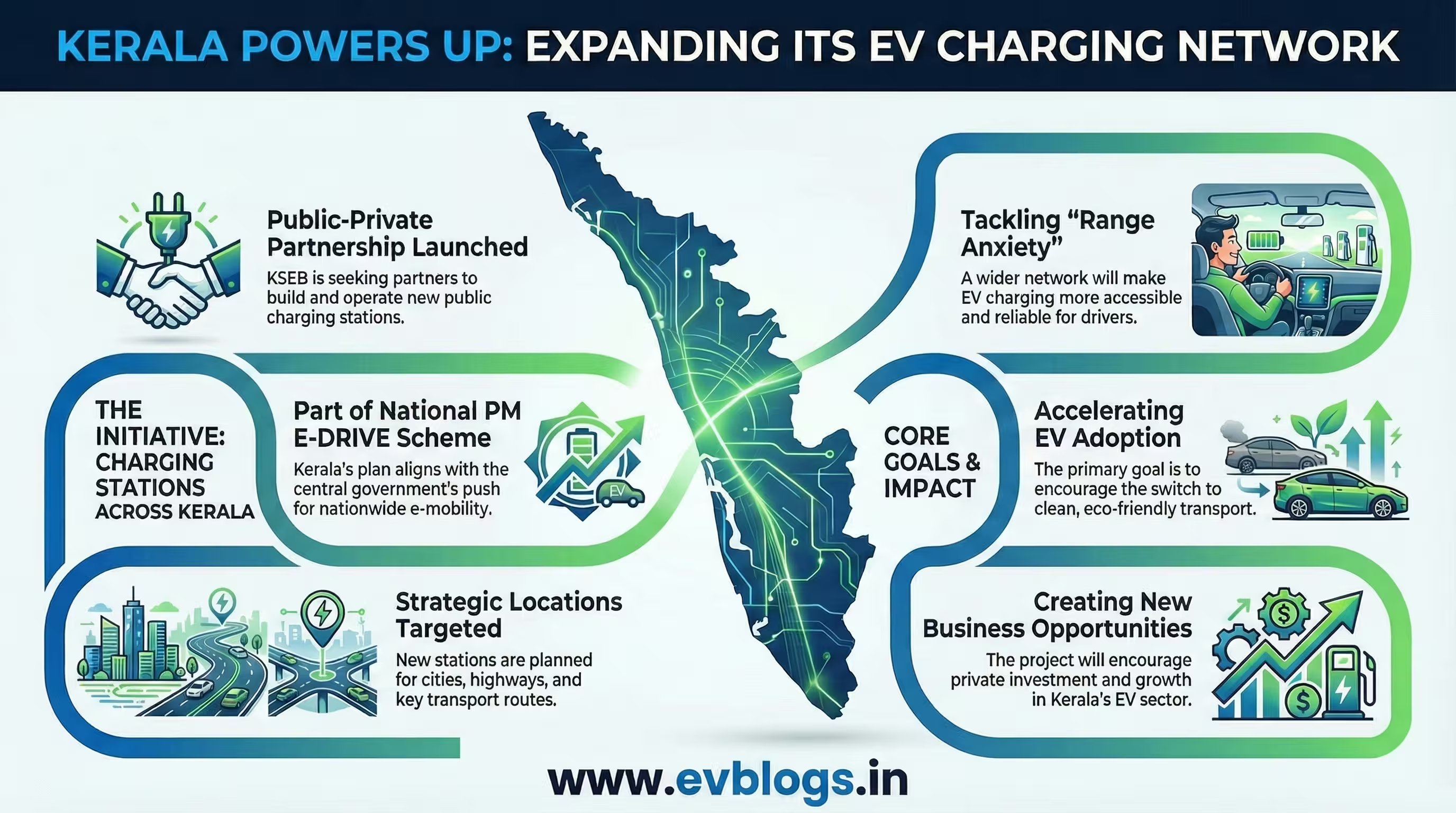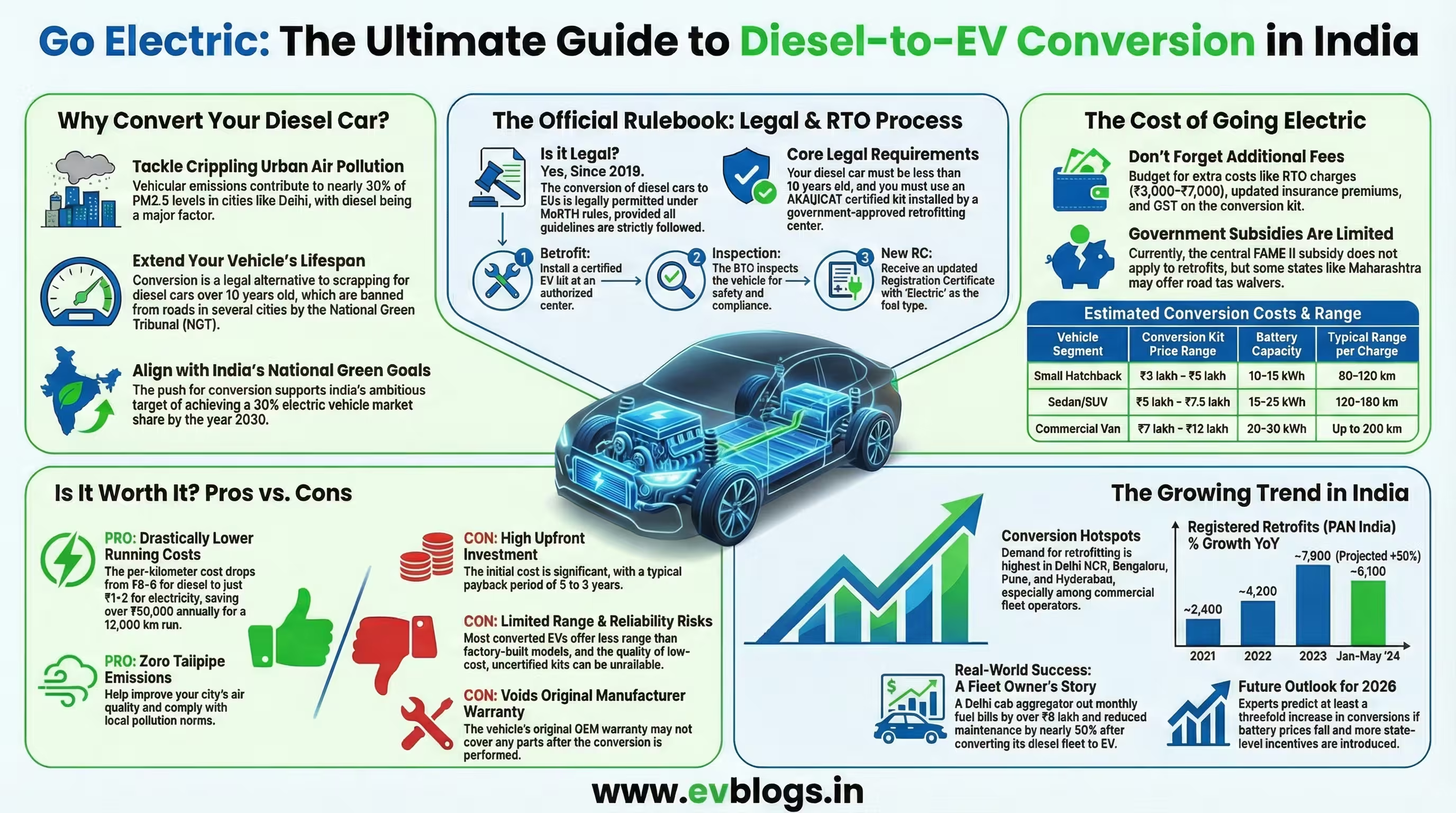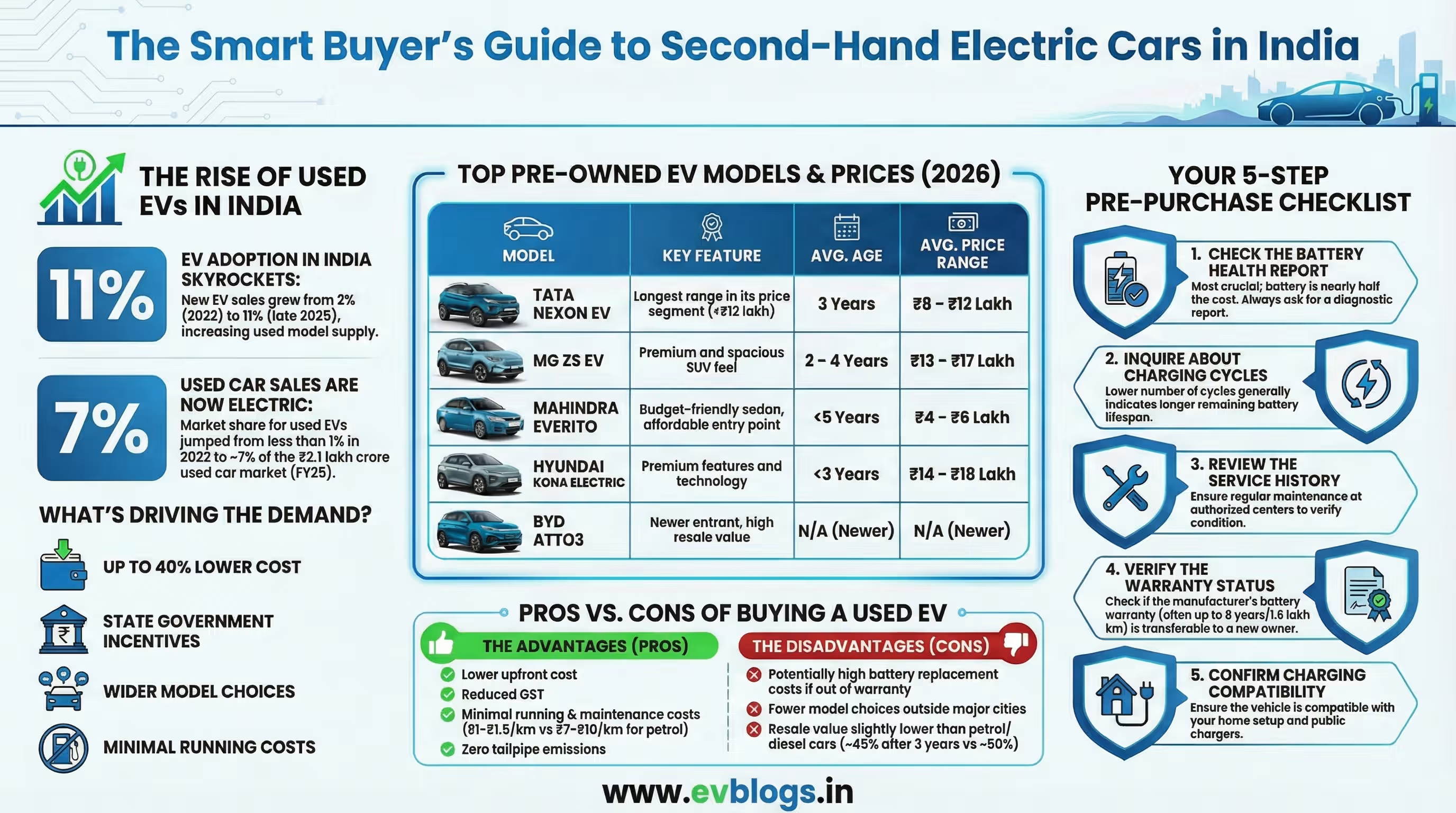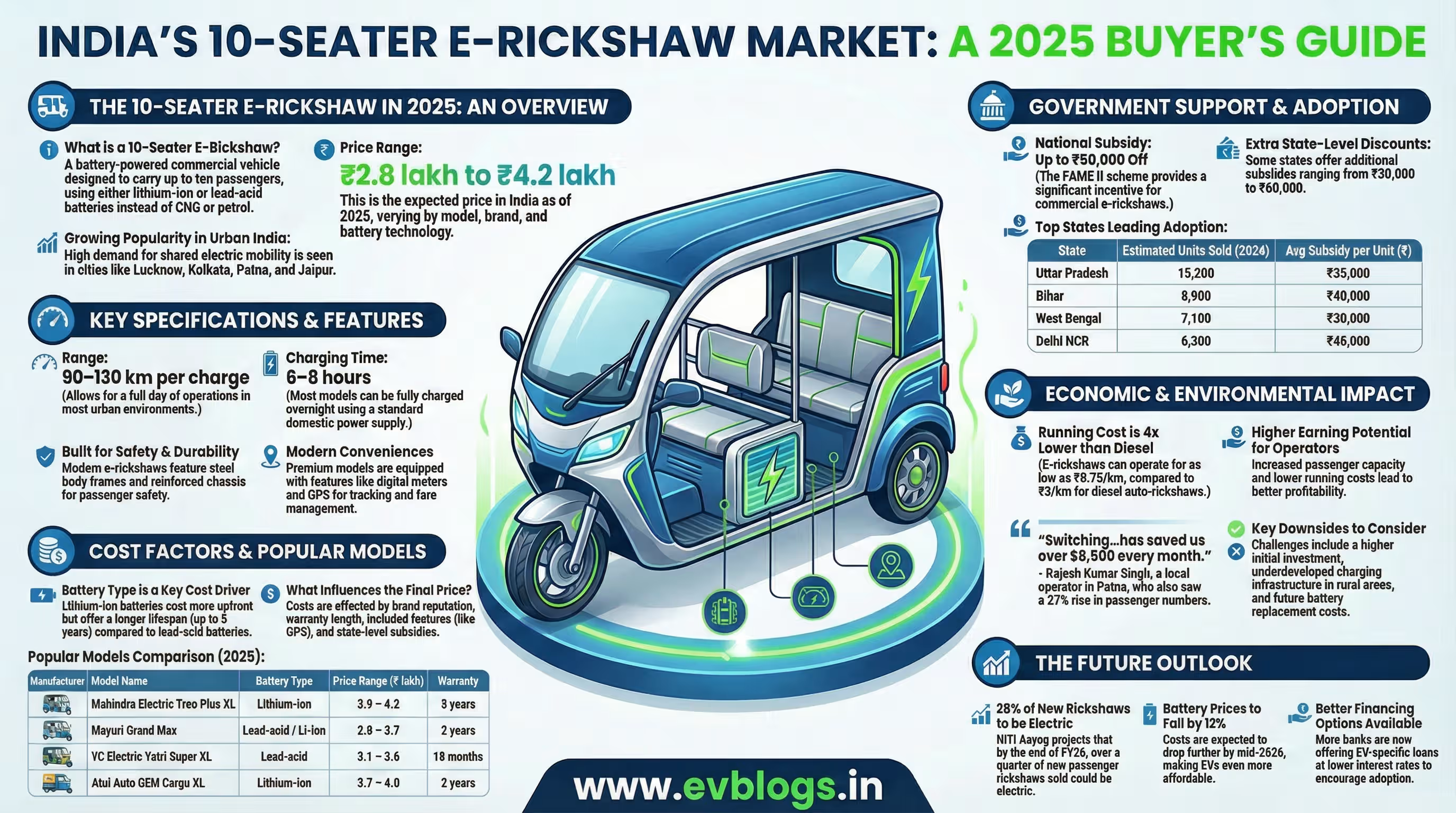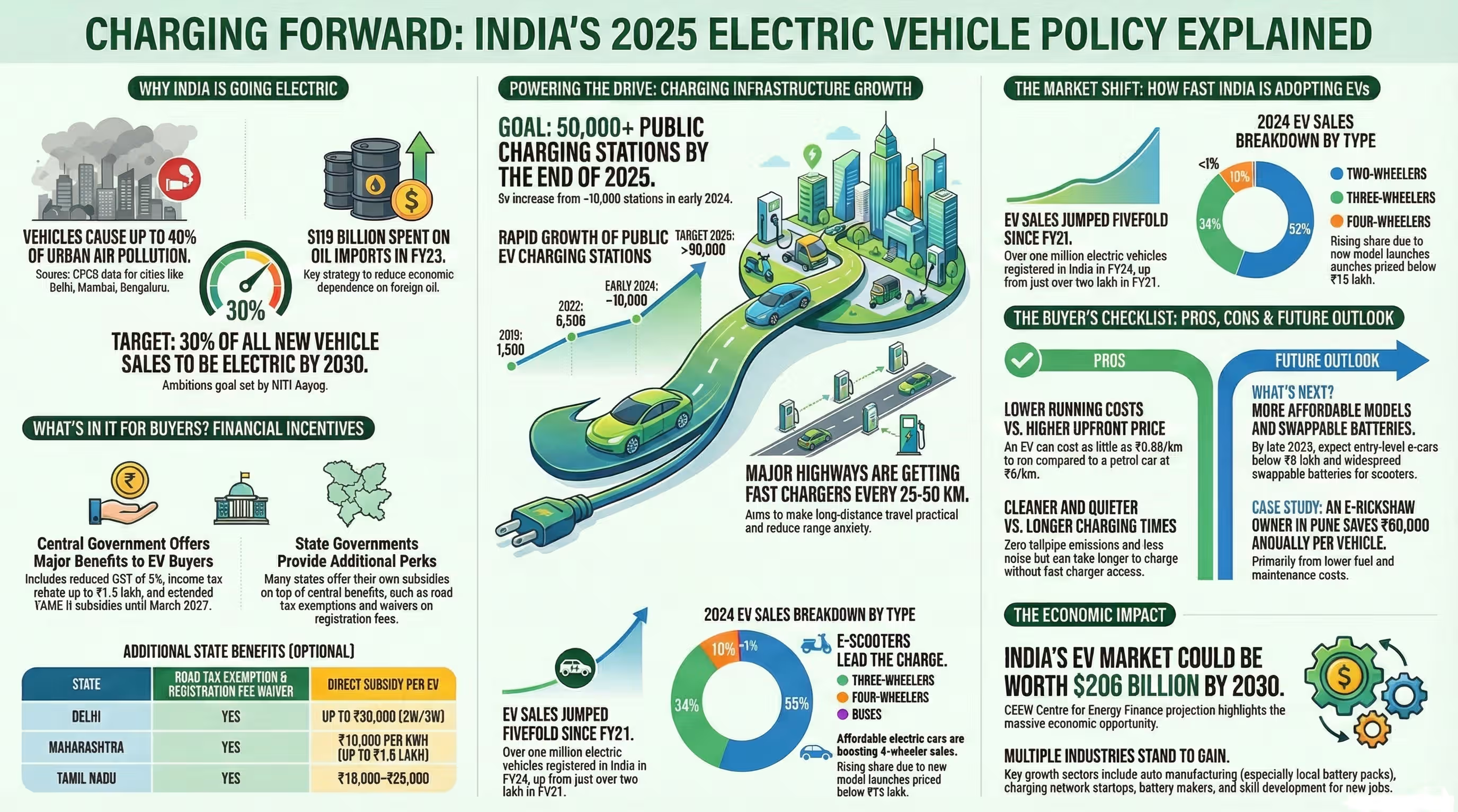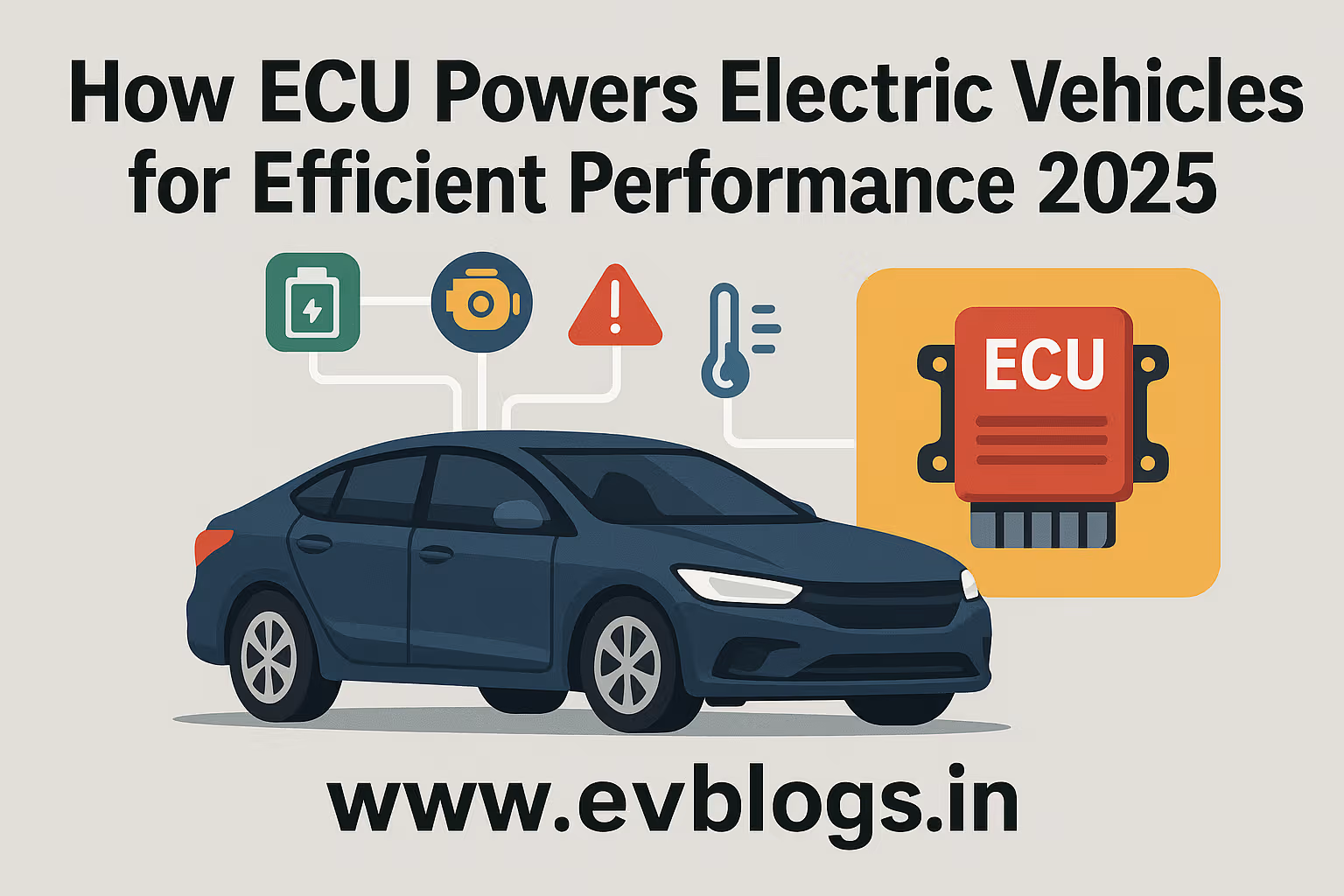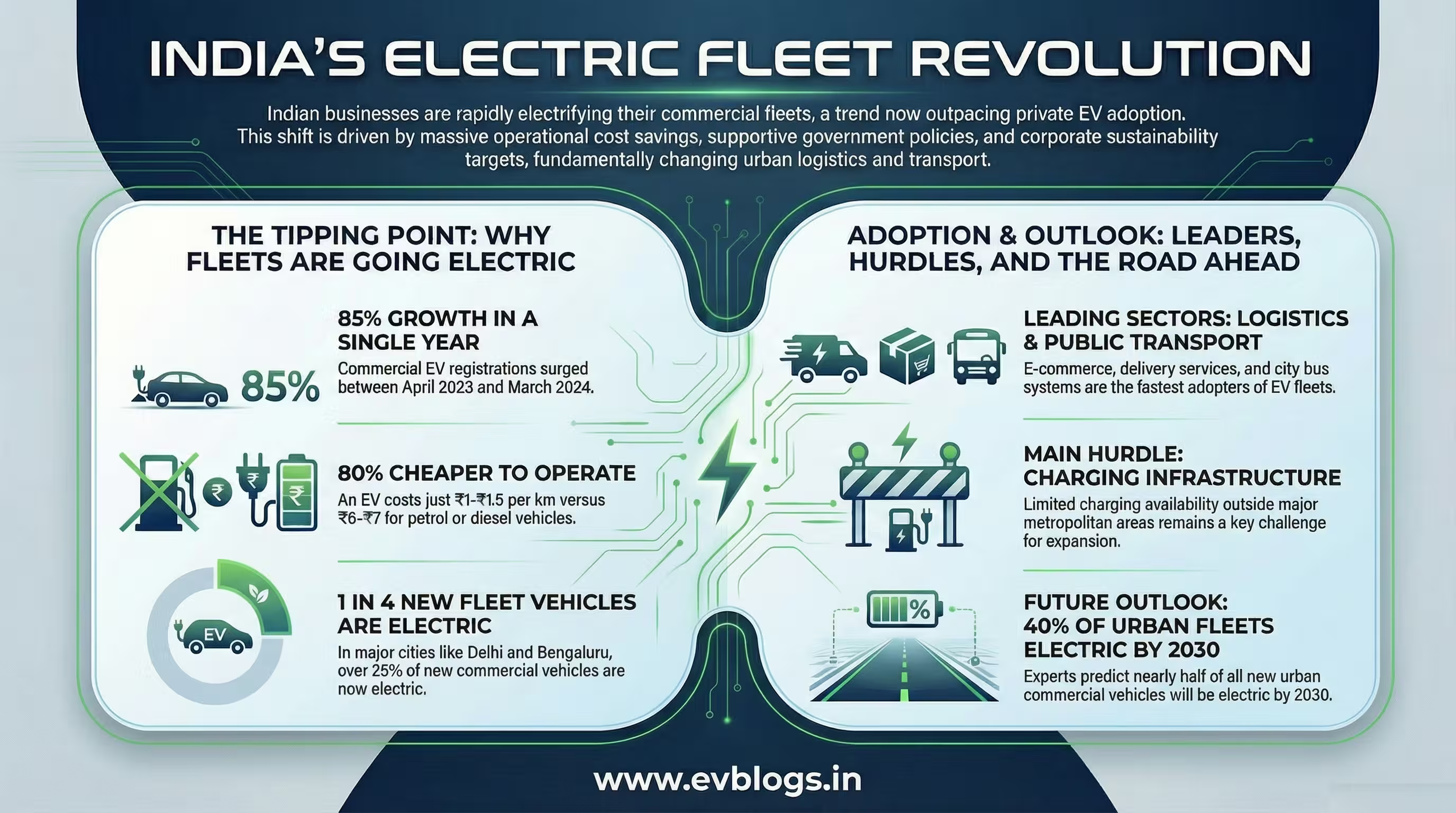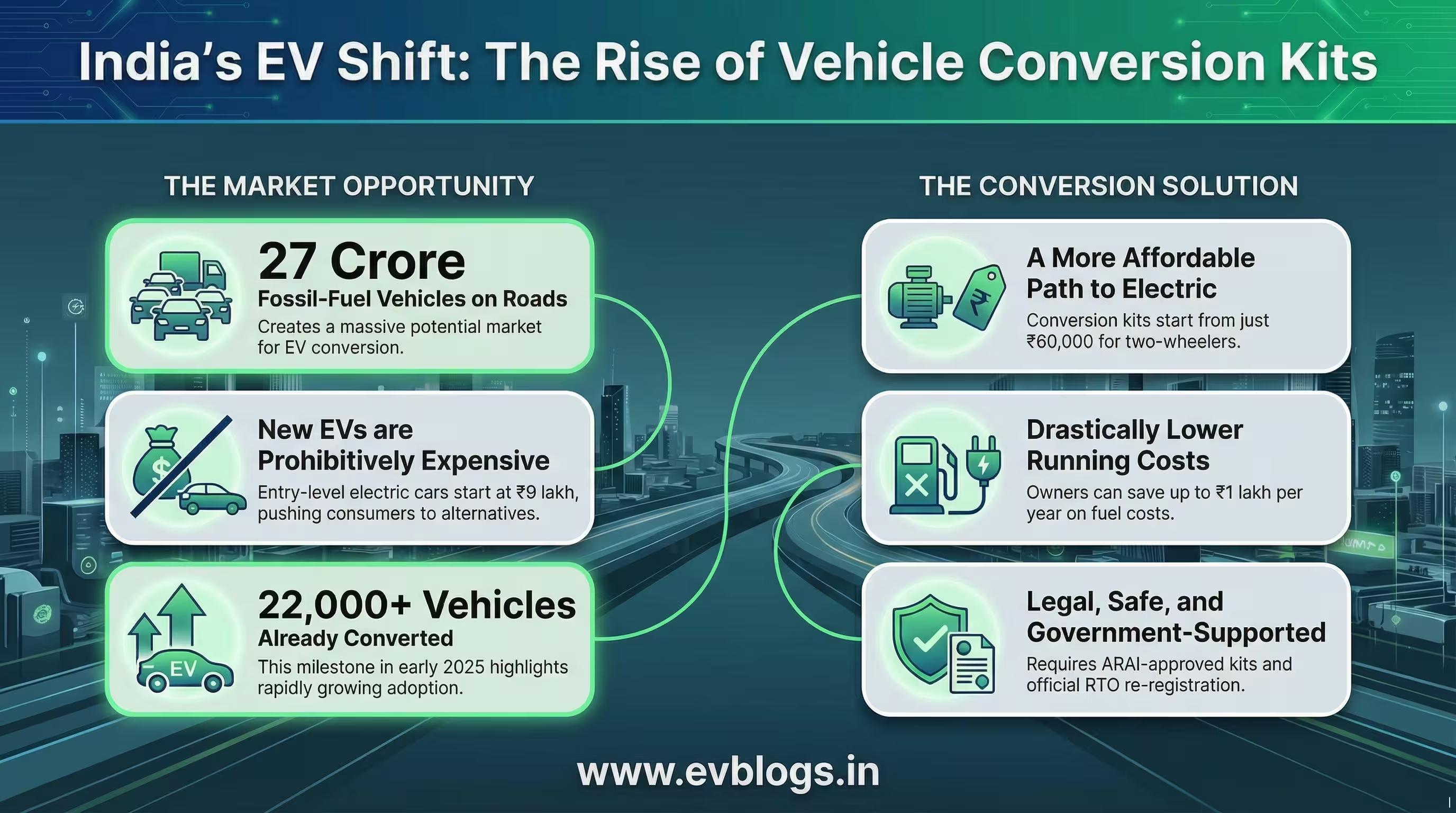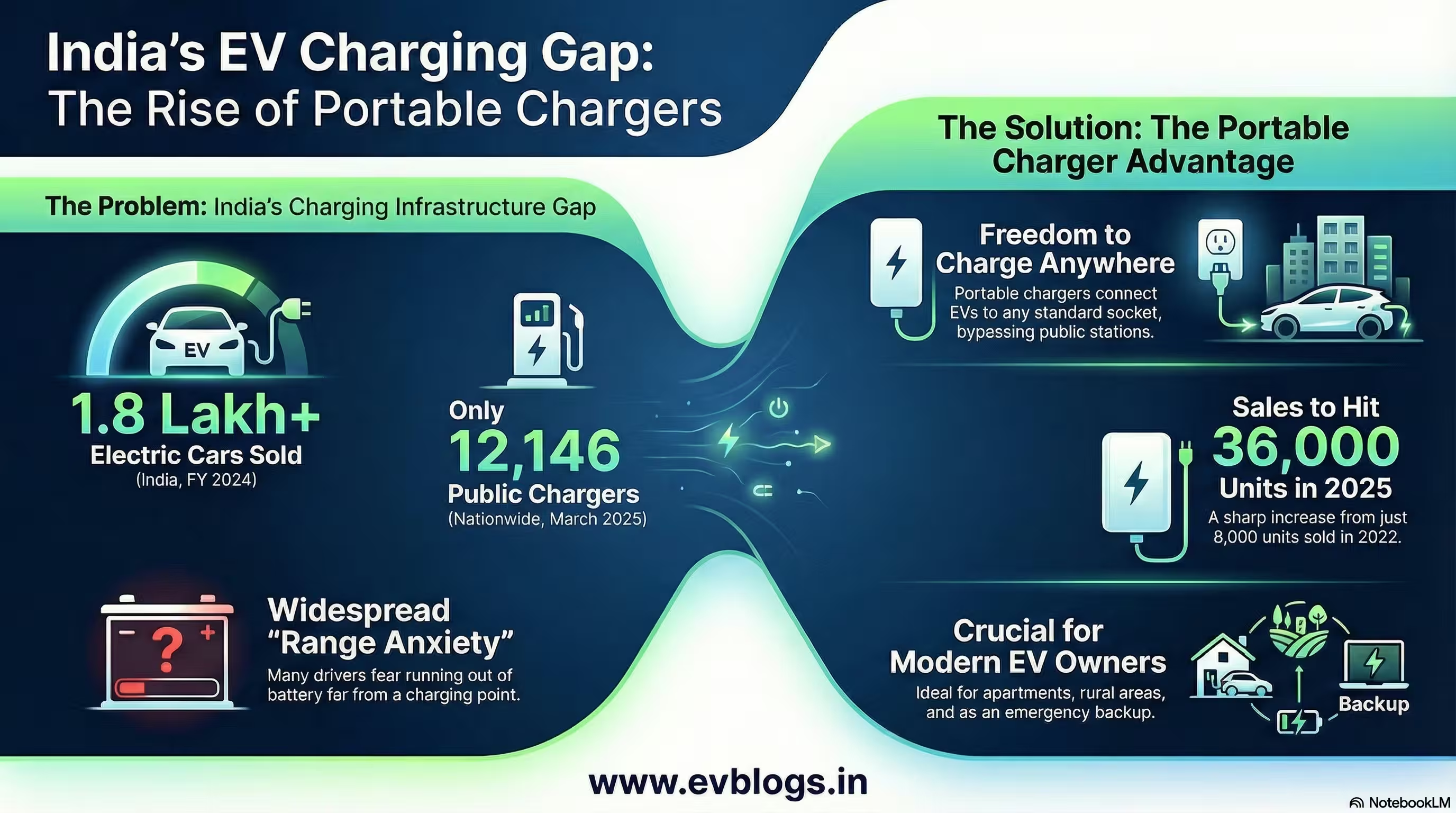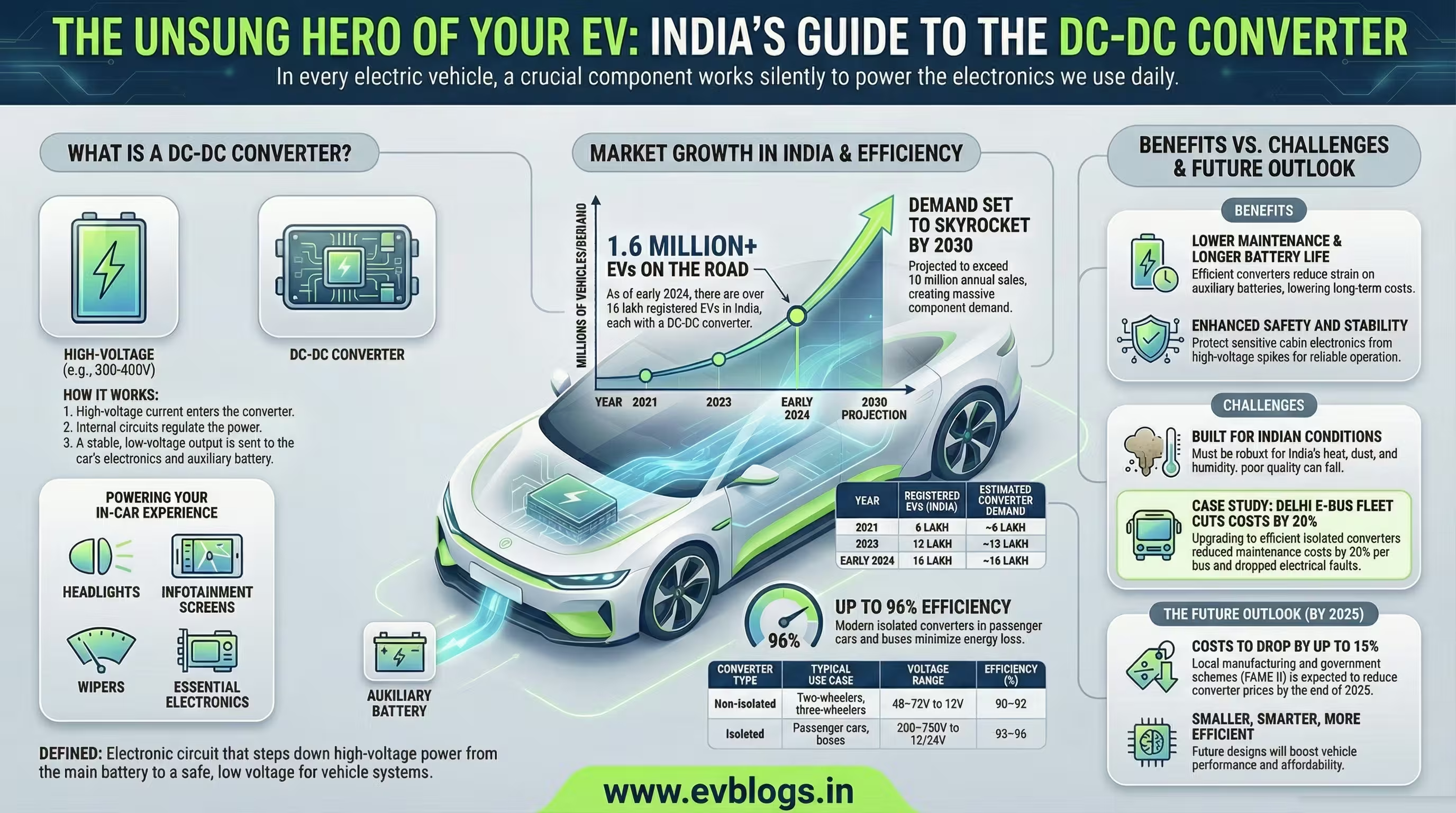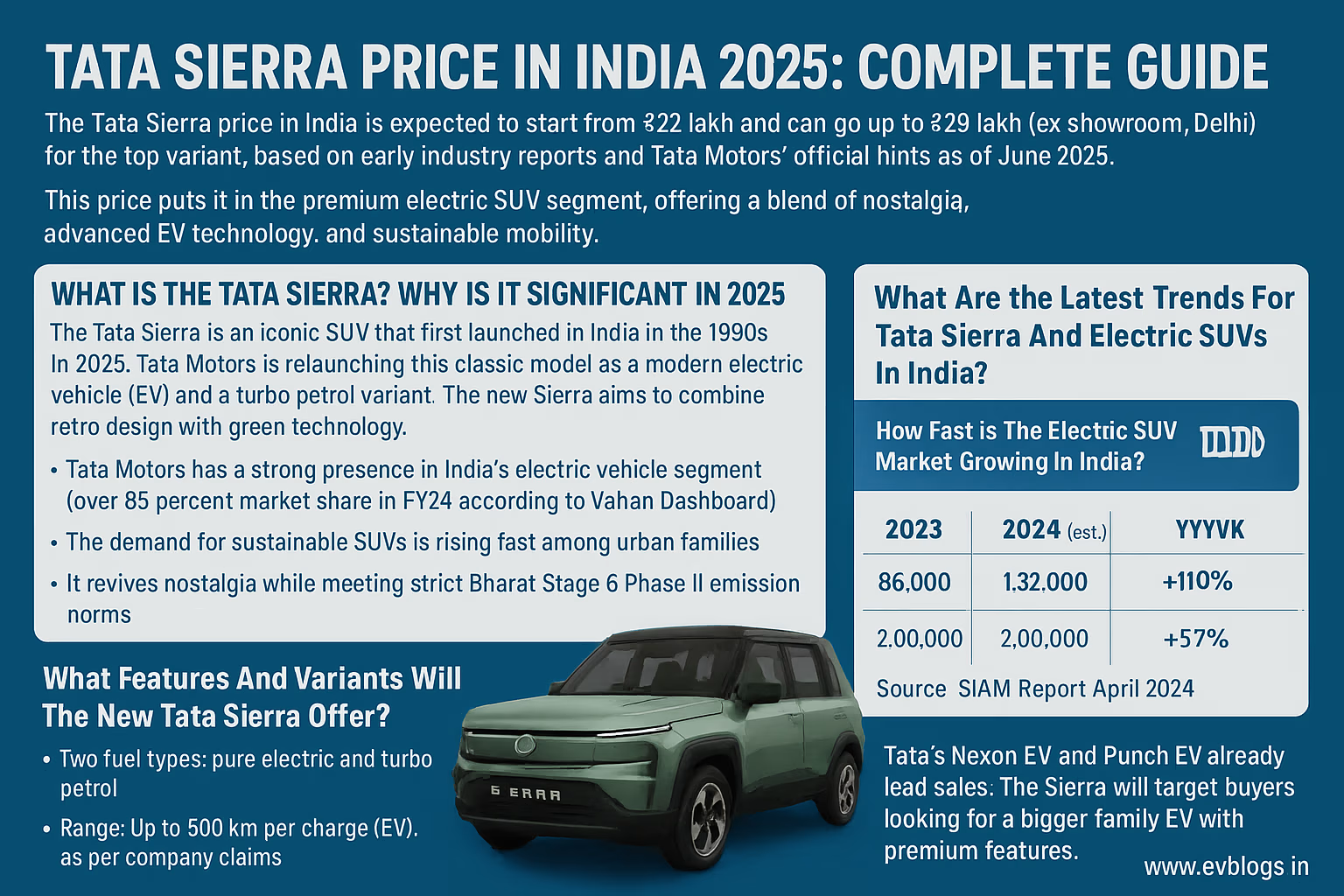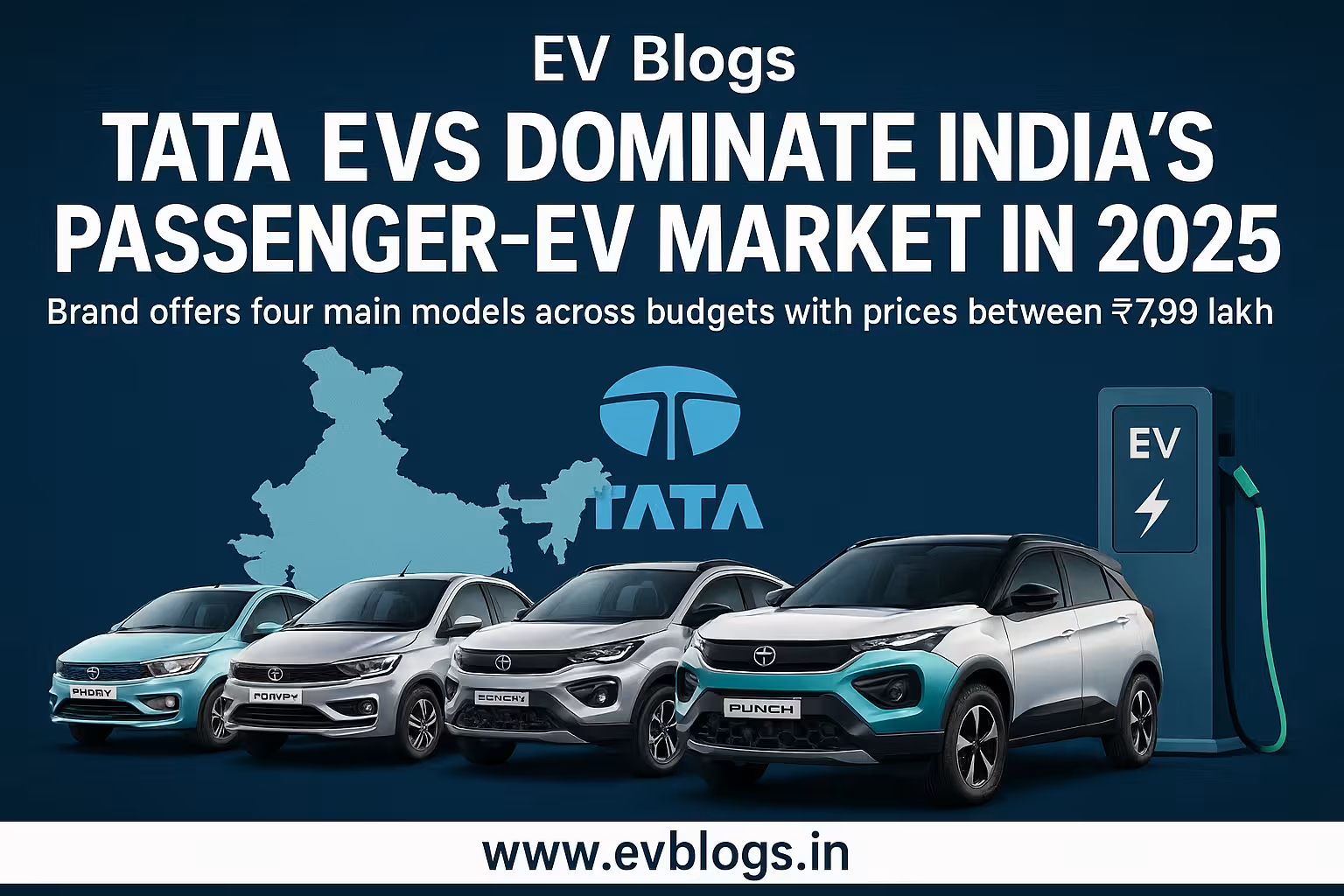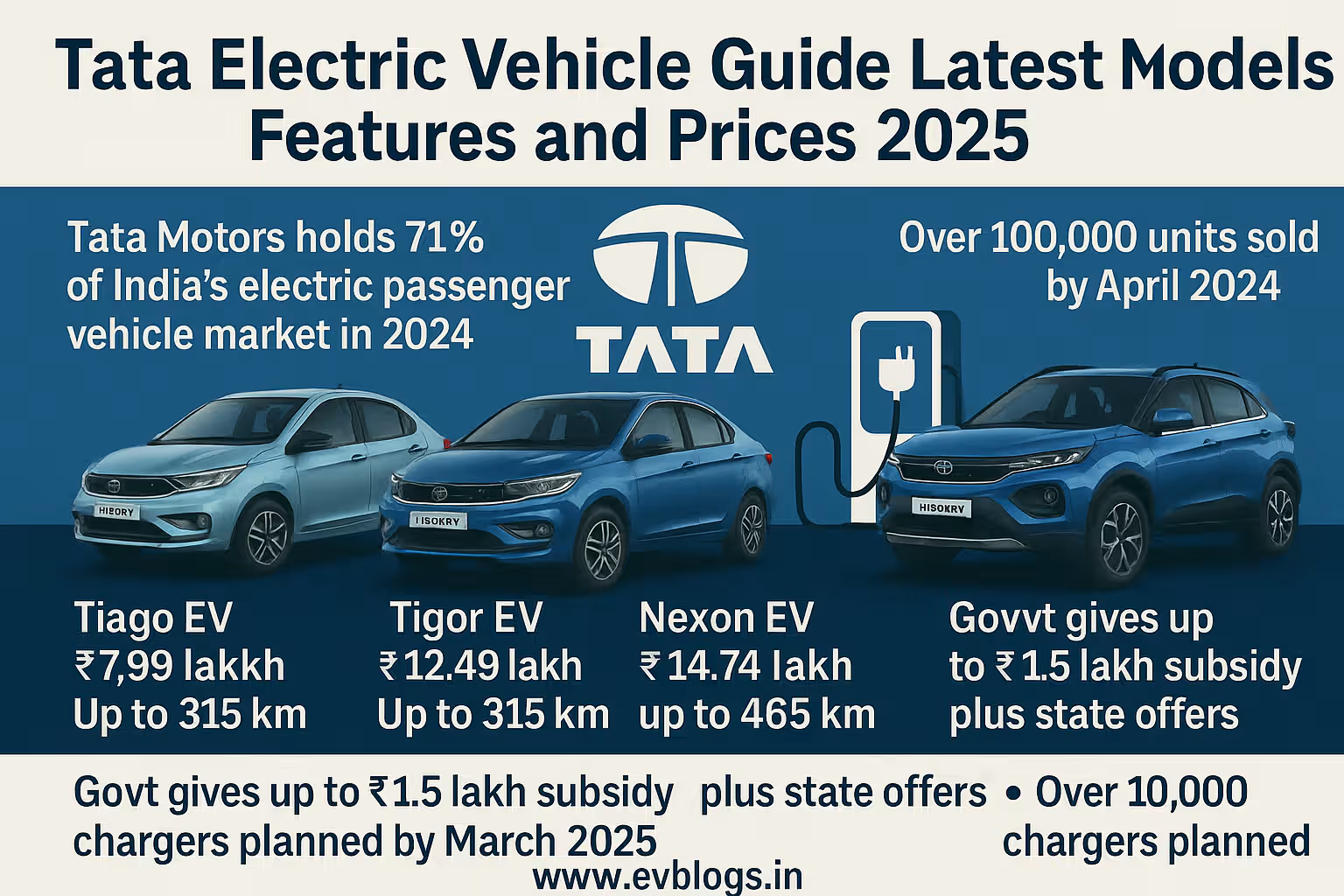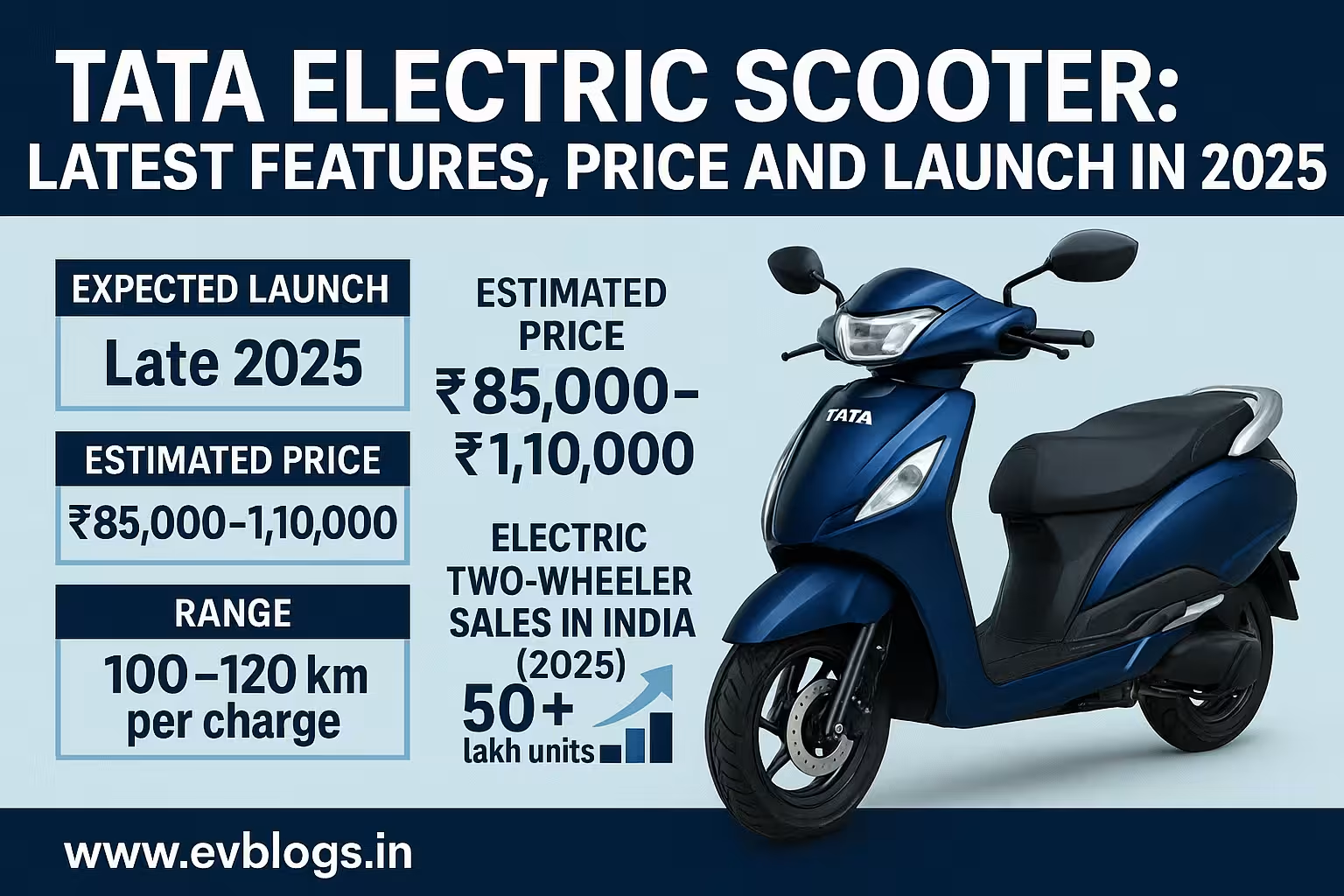Hedhvick Hirav
Hedhvick Hirav is a dedicated EV researcher and editor with over 4 years of experience in India’s growing electric vehicle ecosystem. Their contributions have been recognized in leading sustainability publications and automotive journals.
Summarize & analyze this article with
Choose an AI assistant and open this article directly:
Tip: if the AI doesn’t fetch the page automatically, paste the article URL manually.
What are portable EV chargers in India and why is it important?
In 2025, portable EV chargers have gained a lot of buzz among Indian electric vehicle (EV) users. If you are new to electric cars or thinking of getting one, you may be asking yourself what these are and why everyone is talking about them. Here is a simple breakdown.
Portable EV chargers are small, conveniently portable units that enable you to charge your electric vehicle wherever there is an appropriate electrical source. They are not like conventional bulky charging stations that can be carried in your car boot and assist you in eliminating the range anxiety that is likely to happen when you are in a long trip or where the charging infrastructure is unavailable.
What is the problem in India?
As of early 2025 (as per the Ministry of Road Transport and Highways), over 1.5 million EVs are registered in India and the availability of undisrupted and convenient charging services has never been more essential. Our nation is still developing its extensive network of charging stations; until we can get a charger on every corner, portable EV chargers can be a game changer.
These are the reasons why you need to think about a portable EV charger:
- Allows charging anywhere- at home, at the office, or even at the house of a relative.
- Saves you on running out of battery in places that have no nearby charging stations.
- Describes the various models of cars that have been supported by the various car brands in India which include Tata, MG, Hyundai, Mahindra, and BYD.
- It would bring convenience to the apartment residents who do not have a parking space.
Were you aware ofaldeveystown1951 out of it?
In 2025, CEEW Centre Energy Finance in a survey found that close to 62 percent of EV users in India have been having range anxieties due to the unavailability of charging infrastructure.
Who is the Portable EV Charger in India?
Not sure whether a portable EV charger is what you need? Here is some advice on how to choose whether it is suitable to you.
You are advised to get a portable charger.
- Travel long distances on front of schedule regularly
- Live in a city or a suburban area that has no EV charging opportunities.
- He also does not have an EV, but has not allotted himself a parking spot with a charging point (in most apartment buildings in India this is a norm).
- Fear the prospect of a depleted battery, which has been called range anxiety.
- Have two-way charging systems on hand in case of emergencies, long trips or power outages.
Mobile EV chargers are convenient as well
- Firms with high populations of drivers or consumers.
- There is a risk of EV taxi or ride-hailing drivers.
- Second-hand EV buyers in the case where the permanent home charger setup is not available.
Expert Insight
According to EV owners in Bengaluru and Pune interviewed by the Federation of Indian Chambers of Commerce & Industry (FICCI) in 2024, portable chargers reduced their monthly charging concerns by 60 percent or more, particularly during the monsoon season when a charger on the street may be out of service.
What are the Best Portable EV Chargers in India 2025?
The Indian market in portable EV chargers is more competitive and lively than before. In 2025, the Indian market is flooded with products and many brands introduce models that have been specifically tuned to India. The full comparison of the most popular and well-rated options available is presented below, including such aspects that are most important in the Indian context: compatibility, power output, portability, price, safety, warranty, and special features.
| Brand, Model | Power Output | Plug Type | Cable Length | Approx Price (Rs) | Warranty | Weight (kg) | Special Features | Availability |
|---|---|---|---|---|---|---|---|---|
| Tata Power EZ Charge | 3.3 kW/7.2 kW | Type 2 | 5 m | 34,999 - 44,999 | 2 Years | 4.8 | Weatherproof, Indian EV-compatible | Pan India |
| VRE Portable | 7.2 kW | Type 2 | 6 m | 41,499 | 1 Year | 5 | LCD Display, Fast Charge Mode | Tier-1 cities |
| Magenta ChargeGrid | 3.3 kW | Type 2 | 5.5 m | 29,999 | 1 Year | 3.5 | Mobile App Control | All major cities |
| Delta Portable EVSE | 7.2 kW | Type 2 | 5 m | 49,999 | 2 Years | 5.5 | Overcurrent Protection | Metro cities |
| Grid Go Max | 3.3 kW | Type 2/IEC 60309 | 7 m | 39,999 | 2 Years | 3.2 | Dual Voltage, Compact Design | Selected cities |
| Exicom Quick Portable | 3.3 kW | Type 2 | 5 m | 27500 | 1 Year | 4 | Surge Protection | Pan India |
| Fortum SmartMobile | 7.2 kW | Type 2 | 6 m | 45,000 | 2 Year | 5.8 | Smart Charge, Remote Monitoring | NCR, Mumbai, Pune |
| Tata EV FastPack | 7.2 kW | Type 2 | 4 m | 39,900 | 2 Years | 4.5 | Plug-and-Play, Carry Bag | Tata dealerships |
| ChargeZone Pro | 3.6 kW/7 kW | Type 2 | 5 m | 36,999 | 2 Years | 4 | Touchscreen, Wi-Fi Ready | Urban markets |
| EV SafePlug Compact | 3.3 kW | Type 2 | 6 m | 24,999 | 1 Year | 3 | BIS Certified, Auto Cutoff | Pan India |
Descriptions and detailed notes about each:
- Tata Power EZ Charge: It is well-known in all Tata EV automobiles. Weather proof, can withstand Indian conditions.
- EVRE Portable: Rapid charging of mid/ high-end EVs, long cord convenient to use in apartments.
- Magenta ChargeGrid: Has a convenient mobile app to check the charge status, which is great to have when users want their charge level to be smartly monitored.
- Delta Portable EVSE: Suitable to long-time drivers traveling a lot as it has powerful protection characteristics.
- Powerdock Go Max: Supports both voltages, and can be used on Ather scooters/bikes and most cars.
- Exicom Quick Portable: The base model, which does not have surge or overheat protection.
- Fortum SmartMobile: a final option of those people who want to monitor and share in real-time.
- Tata EV FastPack: Tata with an improved portable package, a handy bag to carry it around.
- ChargeZone Pro: The signal strength is higher and owners are more versed with technology.
- EV SafePlug Compact: Best suited to buyers on a smaller budget and in smaller cities, safety certifications are included.
Were you aware ofaldeveystown1951 out of it?
The most Indian EVs sold in 2025, such as the Tata Nexon EV, MG ZS EV, and Mahindra XUV400, use Type 2 connector that is compatible with most portable chargers available in India.
What Do You Need to Consider When Buying a Portable EV Charger to Work in Indian Conditions?
Selecting an appropriate portable EV charger can be daunting, as there is a great variety of them. Here is what you need to pay attention to in order to gain the highest value and safety in the context of Indian scenarios:
- Power Output (kW): The average Indian household can have chargers with 3.3-7.2kW.
- Type Compatibility: Type 2 has become almost a norm in India and thus care must be taken to ensure that it is Type 2.
- Length: The cord should be long (at least 5m) in order to have flexibility when parking.
- Safety: BIS certified, surge protection, temperature cut-offs and water proof (IP65++ rating).
- Weight and Portability: It must be lightweight (preferably, less than 5kg) that can be transported in your vehicle.
- User Interface: basic LEDs or LCD with battery level display, or access to more technologically-savvy clients via an app.
- Warranty and customer care: Check out brands that have at least 1 year warranty and are known to provide well related customer care.
- Smart Monitoring: Adding value, and can be used to monitor charging cycles and remote diagnostics.
Expert Insight
Safety first! Advertisement of outlets should not be done with unrated extension cords ( Central Electricity Authority, India, 2025).
What is a Portable EV Charger and How Do You Use It in India?
Charging an EV with a portable charger in India is simple even to first-time EV owners. In reality, it is easy to install than a wall-mounted charger dedicated to the home.
Instructions to follow when using your charger:
- To charge your EV, you can use a typical Indian 15A/16A or industrial connector (most of such models are compatible with a standard Indian socket).
- Plug in in Unit charger in the wall charger
- Plug charger in the charger socket of the car (type 2 most cars).
- Make sure that the indicator lights are active charging
- Monitor progress with any mobile app that may be available to the charger.
- Once the car is fully charged, just pull out the connector out of the car and the wall socket.
Considerations:
- Do not use the charger when it is raining heavily unless it is IP65/IP67, and weatherproof.
- Visually inspect the cables to ensure that they did not get damaged.
- Do not leave behind long durations especially in open parking.
- When the charger is not in use it should be kept in a cool and dry place in the car.
Were you aware ofaldeveystown1951 out of it?
The sales of personal portable EV chargers in the cities of India like Delhi, Bengaluru, and Hyderabad are expected to surpass 35 percent by 2024- 2025 (Evreporter.in, 2025).
What are the most important advantages of portable EV chargers in India?
Portable EV chargers bring in special benefits that can be particularly useful in the Indian setting. This is the reason why they are increasingly becoming the choice of users:
- Anywhere Charging: There is no need to rely on fixed parking or building owners/associations to get permission to install a charger.
- Emergency Rescue: This will rescue you in case you get stranded when you have run out of power in isolated areas.
- Cost-Effective: Save up to 25,000 rupees installation fee of some home charger companies.
- Sharing: This can be shared among the family, flatmates or business fleet users.
- Travel Flexibility: An ideal back up on the road trips, highways or villages with insufficient charging infrastructure.
Actually, actual Indian owners, such as Saurabh Jain of Pune (MG ZS EV owner), used the portable charger quite well on a trip across Maharashtra, when a number of public stations were temporarily out of order. Addressing an interview in the year 2025, Saurabh said that without his own personal portable charger, he would only have been left with no choice other than spend big bucks to have a charging point that he could use and stay at a hotel overnight.
Future proofing: The EV landscape is changing and portable chargers can be used on your next car, whereas wall chargers are tied down to a particular location.
Expert Insight
Portable chargers have the potential to save nearly 10,000-15,000 annually in emergency towing or commercial charging expenses among urban consumers, says IESA (India Energy Storage Alliance).
When is it Better to A Portable EV Charger vs Public Charging Stations?
This is one of the most important questions of Indian EV users. Now here is how to make the best decision:
Mobile EV chargers are suitable
- When commuting to or passing through places where there is no known public charging (smaller towns, highway, villages).
- You do not have a parking spot with installed charging (apartment dwellers).
- The need to recharge your EV battery at your workplace, at your relative or holiday destination.
- As a spare when attending festivals or public holidays where in the case of public chargers being crowded or out of order.
When charging stations are improved in the open,
- It requires fast, ultra-rapid charging (most portable chargers can not keep up with 30kW+ public DC chargers).
- At home or at work when you have a safe point of charging.
- When you have a need in additional services (car wash, maintenance) which are provided at commercial charging hubs.
- If your EV has a massive battery (more than 50kWh); in these cases, portable chargers may take a long time to charge your EV overnight.
Were you aware ofaldeveystown1951 out of it?
Whereas portable chargers have a speed of 3.3-7.2 kW (4-8 hours to charge full), the maximum speed of public rapid chargers is 50-120 kW, in which an average EV can be charged to 80 percent within an hour.
Why are Portable EV Chargers Particularly relevant in India in 2025?
The situation in India is very specific because of the diversity of the urban/rural environment and the high rate of electrification. Here is why portable chargers are so necessary at this point:
- Charging Infrastructure: India has charging infrastructure of approximately 10,000 charging points (public and private) as of mid-2025 which is very low in comparison to the number of EVs on the road.
- Electricity Availability Is High: Indian households and offices are equipped with 15A/16A outlets all over the place and portable charging is therefore highly viable.
- Apartment and Urban Living: Over half of urban Indians live in apartments where it is frequently not possible to set up a specific charging system.
- Frequent Power Outages: A portable charger will offer flexibility to charge anywhere there is power and this is essential when load shedding is unplanned.
- Access to EVs in smaller cities: Smaller cities are quickly adopting EVs, but do not have large charging stations.
Priya Sharma, an EV taxi driver in Lucknow, used her Magenta portable charger when the public chargers were occupied during the Diwali week- a typical situation during the festive time.
Expert Insight
Niti Aayog estimates that more than 40 percent of the Indian fleet of privately owned EVs will be charged using portable/home charging by 2030.
What is the Cost of Portable EV Chargers in India in 2025?
The low cost and easy accessibility is a big plus to these devices as compared to fixed wall-mounted devices. The following are the things you need to budget:
- The estimated sales price is 25,000-50,000 rupees in 2025, depending on the power output, and other features.
- Additional costs: Not much you only have to pay a small amount of money in annual maintenance and there is no installation charge.
- Utility-cost: It is billed like general household power (₹7-₹12/kWh in most of Indian cities).
- After sale: Other companies offer free one year replacement service or expanded coverage to some models.
Indian models most in demand, with price, are the following:
| Brand Model | Price (Rs., 2025) | Warranty | Typical Maintenance Cost/Year |
|---|---|---|---|
| Tata Power EZ Charge Standard/Plus | 34,999/44,999 | 2 Years | 500/1000 |
| EVRE Portable 7.2kW | 41,499 | 1 Year | 600 |
| Magenta ChargeGrid Home Lite | 29,999 | 1 Year | 400 |
| Delta Portable EVSE | 49,999 | 2 Years | 800 |
| Exicom Quick Portable | 27,500 | 1 Year | 450 |
| Fortum SmartMobile | 45,000 | 2 Year | Rs.700 |
The following points are to be kept in mind:
- Prices can also differ by city, retailer or any special government subsidy.
- By 2025, most EV companies will include bundled services or discounts on a new car, including Tata, MG, and Hyundai.
Were you aware ofaldeveystown1951 out of it?
All portable EV chargers in India will be required to have the Bureau of Indian Standard (BIS) mark starting January 1, 2025, to be legally sold- meaning they will be safer and of higher quality.
What are the best mobile chargers to use with Tata, MG, Hyundai and Mahindra EVs? Favourite car combinations (Auto Combinations)
A typical search query of EV buyers in India is, which portable charger should I buy on my specific car? Compatibility is essential in order to charge worry-free.
Below is an optimised guide to key 2025 EVs:
- Tata Nexon EV/EV Max, Punch EV: Tata Power EZ charger, Exicom Quick Portable, Tata EV FastPack
- MG ZS EV/Comet EV: Magenta ChargeGrid, ChargeZone Pro, Delta Portable EVSE
- Hyundai Kona, Hyundai Creta EV: Delta portable EVSE, EVRE portable, Fortum SmartMobile
- CEAT IBF, Firestone IBF, Mahindra XUV400: Exicom Quick, Magenta ChargeGrid, ChargeZone Pro
- Atto 3: Fortum SmartMobile, ChargeZone pro, EVRE Portable
Why these are best.
- Certified Type 2 plug-compatible with the Indian market cars.
- Warranty is honoured throughout India through service centers
- Power output is the same as official recommendations of each car brand-it does not under charge or over charge.
Expert Insight
In case you do change cars and remain in the mainstream EV brands in India, you are most likely to be able to use the same portable charger. Ensure that a correct plug is used!
Are portable EV chargers safe at home in India?
The home charging is also important especially in old buildings or multi-floor slabs that are prevalent in India. The positive part is that most 2025 chargers have high-quality safety features:
Major safety benefits
- BIS Certification: This is to ensure that the product matches with Indian electrical specifications.
- Overcurrent/Surge Protection: Prevent shock, fire and damage to equipment.
- Auto Cut-off: It will automatically switch off in case of full battery or too hot phone.
- Water resistant: Indian monsoons and dust (IP65+).
- Smart Sensors: Low connection/voltage fluctuation signal.
Safety checklist of Indian users:
- Always plug into an earthed, certified wall socket.
- Do not use in wet/damp locations unless rated to do so.
- Never use adaptors or extension cords in my outlet in the wall
- Inspecting the cable frequently to tell whether it is worn out or not.
- Do not leave the device in the place where children or pets have access to it
User Story
I am Chennai citizen only. My Exicom portable EV charger provides me with the security of safety cutoffs- no issues at all in 14 months+, says Manish R., Tiago EV owner, January 2025.
Were you aware ofaldeveystown1951 out of it?
The Ministry of Power has recommended to Indian housing societies to allow EV charging in their car parks without any formal authorisation up to 7kW chargers by July 2025, using standard 16A sockets.
How to Decide: Portable EV charger Vs Home Wall Box-Which is more suitable to you?
When deciding between portable and home wall-mounted (fixed) chargers, here are the differences so that you can make a decision:
Portable EV Charger- Best Suited to You When:
- You do not have a garage or parking place
- You want the highest level of flexibility to charge at home, work or during travels.
- You must have a backup/emergency solution to unforeseen events.
- You are after something small and inexpensive.
Home Wall Charger- Best For You When:
- You are the owner of your house and have a personal parking space and you have a right to install it.
- You desire some speedy consistent charging of 7.4kW or more.
- You have more than one family member using your EV every day-there is no need to relocate the charger.
- You require the ability to interconnect apps, schedule off site, or bill by the meter.
Quick comparison:
| Portable Charger | Home Wall Box | |
|---|---|---|
| Installation | None Required | |
| Power Output | 3.3kW-7.2kW | 3.3kW-22kW |
| Portability | Yes | No |
| Initial Cost | 25k- Question mark to 50k | 40k Question mark to 90k |
| Dexterity | FT | High |
| Upgradation | It is easy, just replace | |
| Maintenance | Low | Medium |
| Apartment Use | Outstanding | Conditional |
Recommendations:
- Portable chargers are much more convenient to most Indian apartment residents.
- A fixed wall unit is an excellent choice to house owners who want a more rapid charging option in a charging unit that is used daily.
Expert Insight
Based on the EV India Association 2025 member survey, 77 percent of the first-time EV users started with portable chargers before graduating to wall boxes when they moved into their own homes.
What Are Portable EV Chargers in India in 2025?
In 2025, purchasing a portable EV Charger is a breeze. The following is how to get one in India:
- Open Dealerships: There are Tata, MG, Mahindra, Hyundai and BYD dealerships.
- Online shops: Amazon, India, Flipkart (The two now have stores devoted to EV accessories).
- Brand-specific web sites: Order Exicom, Magenta, EVRE, ChargeZone.
- The Nominated EV Accessory Dealerships is Branded Stores in Metro or Tier-1 Cities.
- EV Fairs/Expos by Government: Manufacturers give advantages.
Good shopping tips
- Satisfy BIS, original warranty, service support paperwork.
- Video call or personal demonstration can assist in clearing up the doubts prior to the payment made.
- One should not use old chargers unless they are sold by an authorized refurbishing dealer, since this may affect safety.
Were you aware ofaldeveystown1951 out of it?
You may now purchase portable EV chargers with special green electricity plans offered by Tata Power and Adani Electricity in select Indian cities- providing you with both device and unit supply savings.
What is the actual experience of using portable EV charger in India? The User (User Story of the User and Case Studies)
The best advice to newcomers is brought out through the use of the uber stories. These are some of the latest and real-life experiences of Indians who use portable EV chargers in their day-to-day lives:
Suneel Sharma- Noida (Tata Nexon EV)
Bus Smart, commuter walks 60km/day, parks in the streets, because apartments are occupied. Tata Power EZ Charge helps him top up his Nexon EV 3 times a week; he says it is as easy as charging a big laptop. By re-stocking the stations on a non commercial basis, he could save about 12000 rupees a year.
Pallavi Joshi surat (Hyundai kona ev)
Travels are common as they travel mostly on business trips between towns Delta Portable EVSE Backup; an example was a family wedding in a farmhouse in Gujarat where public charging non-existent. Likes the long cord to park under sheds in tight areas.
Manoj Balaji, Chennai (BYD Atto 3, Fleet Operator)
He is a small-time ride-sharing owner. Takes a number of Exicom Quick Portable chargers and uses them between drivers, swapping as vehicles require. Decreased the time taken to top up, reduced fleet idle time and customer ratings on always on services.
Nagpur (MG ZS EV) Priya Verma
No nearby charging station publicly available with a radius of 6km. Buy a Magenta ChargeGrid at the recommendation of a friend and charges where she needs it at work or at the homes of her parents. Is more a fan of peace of mind than cost and says that they can not imagine their EV life without it.
Expert Insight
Real Indian EV users put the flexibility, peace of mind, and cost savings as the three most important advantages of their portable chargers.
The Bottom Line: Is It Worth Purchasing a Portable EV Charger in India in 2025?
A portable EV charger is practically a necessity for EV owners or those who want to be EV owners in 2025, especially when:
- You do not have dedicated/owned parking with fixed charging station.
- You have a lot of movement, travel or drive large distances on a regular basis.
- There must be a backup system in case of an emergency as well.
- You want a low cost EV with few surprises.
A portable charger will not only save you money and stress but it can be the difference between an enjoyable EV ownership experience and one filled with charging anxiety to most Indian users.
As the Indian EV market is poised to see exponential growth in the coming years, and the infrastructure is not quite up to the mark, it makes sense to have your own charging solution–practical, affordable, and future-ready.
Were you aware ofaldeveystown1951 out of it?
It is estimated that by the end of 2025, more than 3 lakh (300,000) portable EV chargers will be used in Indian households, which is the fastest growing segment of the EV accessory market.
FAQs
1. Will a portable EV charger work with any electric car in India in 2025?
The Type 2 connector is used in the vast majority of Indian EVs, meaning that it should be compatible, but, once more, you are going to have to check its specification and the connector type included on the charger.
2. Are portable EV chargers compatible with the existing Indian homes?
Yes, provided you use a BIS-certified charger and plug it directly into a standardised (i.e. put in a grounding pin) 16A socket, it is safe. Do not use extension cords or loose wall sockets which are old and loose.
3. Do the portable EV chargers charge as quickly as the public chargers?
No. The majority of portable chargers have a power capacity of 3.3-7.2kW, so it will take several hours to charge an EV. DC chargers (30-120kW) in the public are much faster.
4. How can I find after-sales service to my portable charger?
Major brand electric vehicle car dealers, large online brand service shops, and authorized dealers of major Indian brands are offering after sales services.
5. Is there a subsidy in purchasing portable EV chargers in India?
There is no special subsidy on portable chargers in 2025, but you may receive incentives as part of a new car deal, or state EV incentive programs.
Disclaimers: All the prices, features, and regulations are based on the most recent information as of 2025 and may change. This is changing fast and it is always wise to enquire with the manufacturer or your local dealer to make the most up to date purchases.


